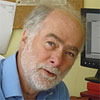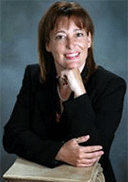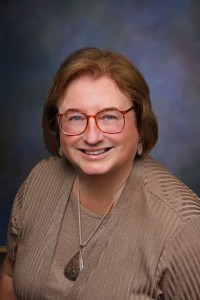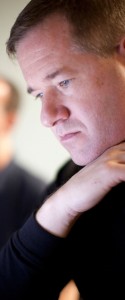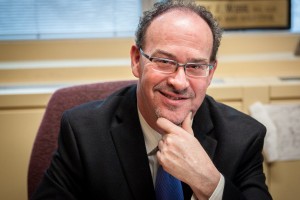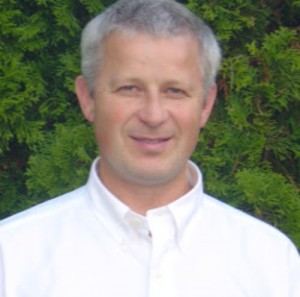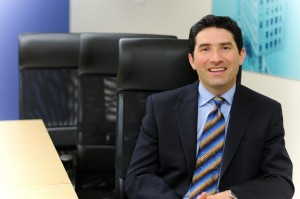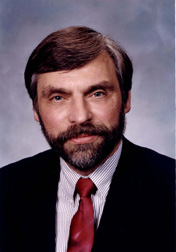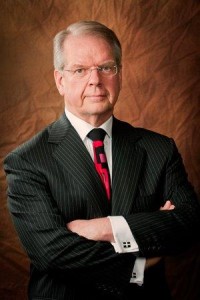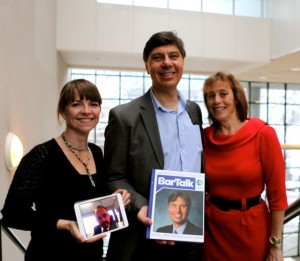♫ Walking in Memphis
I was walking with my feet ten feet off of Beale
Walking in Memphis
But do I really feel the way I feel? ♫
Lyrics and music by Marc Cohen.
The New York Times on Wednesday Jan 21 published an article “The Benefits of a Lunch Hour Walk” by Gretchen Reynolds. It has important implications for those feeling stressed, out of shape and suffering from a less-than-optimal mood. She states:
“A new study finds that even gentle lunchtime strolls can perceptibly — and immediately — buoy people’s moods and ability to handle stress at work.”
What is different about this study is that it doesn’t focus on long term results – it looks at the short term results of walking just 30 mins at lunch.
This study was published in the Scandinavian Journal of Medicine and Science in Sports and involved researchers at the University of Birmingham and other universities.
According to the abstract of the study:
“During the intervention period, participants partook in three weekly 30-min lunchtime group-led walks for 10 weeks. They completed twice daily affective reports at work (morning and afternoon) using mobile phones on two randomly chosen days per week.”
This is not getting out and running 6 miles at noon. It is simply walking – getting out of the office, hitting the sidewalks and taking in some (hopefully) fresher air, sunshine and conversation.
What did they find?
“Lunchtime walks improved enthusiasm, relaxation, and nervousness at work, although the pattern of results differed depending on whether between-group or within-person analyses were conducted. The intervention was effective in changing some affective states and may have broader implications for public health and workplace performance.”
Gretchen Reynolds stated:
“To allow them to assess people’s moods, the scientists helped their volunteers to set up a specialized app on their phones that included a list of questions about their emotions. The questions were designed to measure the volunteers’ feelings, at that moment, about stress, tension, enthusiasm, workload, motivation, physical fatigue and other issues related to how they were feeling about life and work at that immediate time.”
And what did they find from those who went for a walk?
“On the afternoons after a lunchtime stroll, walkers said they felt considerably more enthusiastic, less tense, and generally more relaxed and able to cope than on afternoons when they hadn’t walked and even compared with their own moods from a morning before a walk.”
All the volunteers showed gains in their aerobic fitness from the exercise. Unfortunately many could not continue with their exercise as they felt pressured by management to work through their lunch. Just a suggestion, but when it comes to improving people’s performance at work, perhaps management needs to take a walk…
-cross posted to tips.slaw.ca.
♫ If I could do it all again I’d take it a little slower
make a few more memories I could keep
crawl in bed beside my child, just lay down and watch her
soaking up the beauty while she sleeps
I’d work less hours
buy more flowers
make more love on rainy afternoons
I might make less money
but I’d make a better friend
if I could do it all again…♫
Music and lyrics by Rivers Rutherford and George Teren, recorded by Gretchen Wilson.
I thought that, rather than do a New Year’s Resolution-type post, that I would reach out to my friends and colleagues and pull together a collection of ideas all on the theme of: “What one thing (or two) that we all know we should be doing in 2015 but aren’t?”
We all know that there are things that we should be doing but always we don’t seem to find the time to do them. Like exercising more, eating less and laughing…like getting out and enjoying the company of friends, reading a good book or playing that guitar. But this also applies to our law practices as well. Turn on encryption! Be attentive to security concerns. So here goes – the best advice for making the most of 2015:
Roger Smith OBE:
What one thing (or two) that we all know we should be doing in 2015 but aren’t?
Look up as well as down
Here is what a Brit would recommend to a Canadian – make of that what you will. Resist the pull of the provincial – with a big P and a small one. Remember that law is supremely national but that technology is international – and values are eternal. Of course, everyone sees life through the eyes of their home jurisdiction and circumstances. Here in London, this is just downright depressing. Cuts to legal aid are as big as BC faced a decade or so ago. Practitioners and activists are exhausted by the fight to maintain any level of effective legal aid. Few – particularly in the traditional legal aid community – have the energy to lift their eyes to the horizon. As a result, innovation is slow, scattered and even somewhat disparaged. So, what should we be doing that we might not? Combining an excitement about the new approaches developed in other jurisdictions (like BC) with a commitment old values – like a commitment to access to justice for all (even those currently excluded from the new digital world) and the right to appropriate independent legal advice (which must not be fudged in the rush to mediated and mechanised approaches).
Roger Smith is a London-based researcher, journalist, activist and consultant on access to justice and human rights. Editor bimonthly newsletter on latest developments for International Legal Aid Group. Author of the global survey, ’Digital Delivery of Legal Services to People on Low Incomes (thelef.org). Former director of JUSTICE and the Legal Action Group. Visiting Professor, London South Bank University. Awarded an OBE in 2009.
Andrea Cannavina:
I think the one thing we ALL should be doing more of and are not is MOVE. Get up at least once per hour and move around – get the blood flowing. Don’t forget about proper posture while computing – feet flat on floor, monitor eye level, arms perpendicular to work surface and wrists resting.
For over 13 years Andrea has been helping practicing attorneys, law firm administrators, consultants and business owners with the selection and integration of processes, systems and technologies to get the paying work done. She answers questions regarding telephone/reception, client, file and email administration, time and billing; achieving and maintaining a professional web presence; getting paid; and setting up/maintaining many web based services and technologies aimed at attorneys and “legal”. Andrea is recognized as the CEO of LegalTypist, Inc. a NY based legal transcription and secretarial service and founder of The Legal Connection Community. You can learn more about Andrea at: http://www.andreacannavina.com and the Community at: http://www.thelegalconnection.com
Michael McCubbin:
All great objectives to aspire to – I have a hard time choosing one, but I think that the #1 thing we should focus on is digitizing information and building our practices around that as “the file” as opposed to just a complement to “the file” or something we need to do before emailing/uploading a document from “the file”.
The reason? It is just the most basic thing underlying so many of our progressive legal technology practices. I am seeing fewer and fewer email attachments show up with a default scanner-assigned file name that it suggests to me that more users are getting organized.
Of course, many of your readers will be here already, but I do not think that we have crossed the chasm in the adoption curve yet, which some writers suggest only happens after about 16% of consumers adopt a new technology or practice (although I have no idea how such general stats might apply to the legal profession).
Michael draws on a broad variety of life experience that allows him to understand and relate to most clients that walk in the door.
He opened his office with the view that there was a better way to practice law, one that avoids the needless expense of conventional law firms and focusses on client outcomes. Today, his clients value things like not being charged for printing and file storage fees, as well as the responsive, efficient service associated with a digital practice that still has a bricks & mortar office in a Vancouver heritage building.
Michael frequently speaks on legal technology issues and participated in one of the first paperless Court of Appeal hearings in British Columbia. He is an active member of the Trial Lawyers Association of BC and sits on its Legal Aid Action Committee.
Sharon Nelson:
- Moving to an encryption by default world with the client data we hold.
- Making sure that all third party vendors that hold our sensitive data are also encrypting it.
Sharon D. Nelson, Esq. Sharon D. Nelson, Esq., is the President of Sensei Enterprises, Inc, a digital forensics, information security and information technology firm in Fairfax, Virginia. Ms. Nelson is the author of the noted electronic evidence blog, Ride the Lightning and is a co-host of the Legal Talk Network podcast series called “The Digital Edge: Lawyers and Technology” as well as “Digital Detectives.” She is a frequent author (twelve books published by the ABA and hundreds of articles) and speaker on legal technology, information security and electronic evidence topics. She was the President of the Virginia State Bar June 2013 – June 2014. She may be reached at snelson@senseient.com.
Mitch Kowalski:
I was recently told the story of Lord Hailsham’s response to a question from a young law student.
“My Lord, what is the best advice to a young lawyer starting out?”
There was a moment of contemplation before Lord Hailsham responded.
“Take lots of baths.”
At first blush, he could have been referring to the general lack of hygiene among students, but Lord Hailsham went on to explain that everyone, young and old, should take time out from practice to look ahead and plan your future – one musn’t get so busy making a living, that you forget to make a life.
So this year, I will take lots of baths.
Cheers,
Mitch
Mitch was recognized as a Fastcase 50 Global Legal Innovator in 2012, and he is the author of the critically acclaimed American Bar Association best-seller, Avoiding Extinction: Reimagining Legal Services for the 21st Century. The American Bar Association will be publishing his forthcoming book, The Great Legal Reformation, in the Summer of 2015. Mitch is a principal of Cross Pollen Advisory which redesigns how in-house counsel deliver and buy legal services. He is also a visiting professor at the University of Calgary Law School where he teaches worldwide trends in the legal services market, and what they mean for lawyers and clients.
Nicole Black is a Rochester, New York attorney and the Legal Technology Evangelist at MyCase.com, a law practice management software company. She is the author of “Cloud Computing for Lawyers” (2012) and co-authors “Social Media: The Next Frontier” (2010), both published by the American Bar Association. She also co-authors “Criminal Law in New York,” a Thomson West treatise. She writes a weekly column for The Daily Record and has authored numerous articles and has spoken at many conferences regarding the intersection of law, mobile computing and Internet-based technology.
Garry J. Wise:
Get a digital checkup.
Like it or not, law firms are increasingly vulnerable to malicious actors online; we are also perpetually vulnerable to the consequences of our own neglect within.
One solution to these very real threats is to institute an Annual Digital Checkup for your firm.
Have a qualified professional inspect your systems to identify any potential vulnerabilities, and to provide recommendations as to any necessary steps your firm should be taking to protect its data.
In an era where it has become predictable that hackings and security breaches will regularly affect even the largest and most secure of our nation’s institutions and enterprises, lawyers need to become more proactive in fulfilling our basic ethical duty to protect our digital data through appropriate security safeguards, backup procedures and in-house computer-use policies.
Garry J. Wise was called to the Ontario Bar in 1986, and practices with Wise Law Office (www.wiselaw.net), a Toronto litigation firm with focus on Employment Law, Family Law and Civil Litigation.
He is primary contributor to the award-winning Wise Law Blog, and is also developer of WISELII, Canada’s Mobile Legal Research Tool, a free iPhone application enabling users to research Canadian case law, statutes and regulations via CanLii.
Garry has contributed to Bar-eX News, SlawTips, Huffington Post, CCH Labour & Law Newsletter, Canadian Bar Association’s Solo and Small Firm Addendum, Divorce Magazine and CCH Canadian Family Law Guide.
He has been a Continuing Legal Education presenter for organizations including the Law Society of Upper Canada and the Ontario Bar Association on social media, legal ethics, Web 2.0, cloud-related security issues and legal innovation.
Garry has been featured in the National Post, Toronto Star, LawPro Magazine, Lawyer’s Weekly, Canadian Lawyer Magazine, CCH Student E-Monthly and Toronto’s Now Magazine.
In addition to his professional and blogging activities, Garry dabbles as a writer and musician.
Garry can be reached by email at gwise@wiselaw.net. Follow Garry J. Wise on Twitter: @wiselaw
Andrew Clark:
I went to a World Religions Conference on the weekend that had representation from the Buddhist, Christian, Islam, Jewish and Sikh faiths addressing the world wide problem of radicalism. One of the key take aways for me, and that all speakers appeared to agree with, is that it starts with us as individuals. How do we change our own thinking about other people, other beliefs, other cultures? Let’s stop our own thinking that goes down the wrong path of how we think of others who are different or think differently. Then maybe we can influence others to do the same. I can apply that same concept to technology projects that introduce change. Many of us resist change ourselves, and we are critical of others who resist change. So the one thing I need to be doing in 2015? I need to start with myself, to be more adaptable to change, and more understanding and acceptable of others who resist change.
Andrew Clark is an independent consultant specializing in management consulting and project management in the Justice Sector. Andrew has spent the last ten years providing management consulting for a number of clients worldwide. Andrew started his career over 20 years ago in software engineering as a specialist in user interface design. Andrew worked as an IT Director for the BC Ministry of Attorney General where he was the project director for the JUSTIN project, BC’s criminal case management system. After managing a software company for 8 years, Andrew started his own consulting company. Throughout his career, Andrew has focused on Project Management and Team Building within an organization. He is a UVIC graduate with a B.Sc. and an MBA. Andrew is also a Project Management Professional certified by the Project Management Institute and an associate faculty at Royal Roads University where he has taught project management education within the MBA program for 6 years.
For the past nine years, most of Andrew’s work has been in the Courts, highlighted by his work in British Columbia. He’s also had the opportunity to work with the Courts in Vietnam, Rwanda and the Yukon. Currently Andrew is managing the BC Provincial Court Scheduling Project.
Andrew has spoken at several conferences including the Court Technology Conference (CTC), the Canadian Forum on Court Technology, the Center for Legal and Court Technology Affiliates Conference and the Pacific Legal Technology Conference.
Email: andrewclark.willowtree@gmail.com
URL: http://www.linkedin.com/pub/andrew-clark/4/247/937
Karen Dunn Skinner:
Here are our top three things lawyers should do in 2015 but probably won’t.
Brian Mauch:
Passwords are our main protection for our online life, but most people use simple passwords with minimal variations and keep the same password forever. We should all be using strong passwords (at least 8 characters long, including mixed case, numbers and symbols) and change them on a regular basis.
Ross Fishman:
Drink more water! Get more exercise! Walk 10,000 steps daily!
Or, wait, was that drink 10,000 glasses of water? Exercise in the water?
Joe Kashi:
Joe Kashi received his BS and MS degrees from MIT in 1973 and his law degree from Georgetown University in 1976. He has been a full-time litigator since 1977. Since 1990, he has published in excess of 200 articles and made dozens of presentations about legal technology on behalf of various bar associations and private publishers. Between 1990 and 2000, he also owned and operated a small computer store.
Bjorn Christianson:
Treating with respect the power to form an opinion.
Bjorn is the managing partner of the Christianson TDS offices in Portage la Prairie, MacGregor and Gladstone, offices which have operated with the Christianson name since 1970. His current practice is focused principally on transactional matters in the areas of Farm Real Estate, Corporate, Commercial, Estates, Municipal Law, and litigation relating to those matters.
Born and raised in and around Westbourne and Portage la Prairie, Bjorn has spent his working career in South Central Manitoba. His clients are the individuals, businesses and institutions who live, work and shape the communities in the area. The concerns his clients bring him involve the acquisition, growth, and protection of their family, farm, and business assets.
David J. Bilinsky:
Well I hope you have enjoyed reading the ideas put forward by our colleagues! Here are my thoughts on what we all know we should be doing in 2015 but aren’t (or perhaps could do a bit more…):
- Look after our world. Be a part of a group that is trying to make the world a better place. We all say that ‘someone should be doing …X…” well that someone is really each of us. We can’t to everything but we can help out in some way, at some level, by being in some group that is trying to do things better. Someone once said that the best thing you can do for yourself is to help someone else.
- Look after those closest to you. Time slips between our fingers all too quickly. Hilary Cooper said “Life is not measured by the number of breaths we take, but by the moments that take our breath away.” Set time aside to catch as many of those breath-taking moments as you can with those you love.
- Take time to look after yourself. The fact is that if you don’t, no one else will. You have a gift of life, time and intelligence. Use these gifts well to not only look after others but look after yourself, too.
So buy more flowers! Be a better friend! Play that guitar that gets lonely sitting in its case! We have the incredible advantage that there is still time ahead of us…
♫ Oh won’t you show me the way, every day
I want you to show me the way…♫
Lyrics, music and recorded by Peter Frampton.
The CBA’s Practising Ethically with Technology guidelines, published by the CBA Ethics and Professional Responsibility Committee, has identified five areas where lawyers most often face ethical issues using technology.
These are:
- Confidentiality
- Security
- Marketing
- Providing services electronically, and
- Accessibility
There is a lot of information poured into these guidelines and it is an excellent overview of the most important issues facing lawyers today in terms of technology and its risks. It is also a wonderful resource in terms of being a reference to further articles and information.
As much as some lawyers may prefer to not have to deal with the implications of technology in their practice, the fact is that the technological genie is out of the bottle. Every story about Aladdin meeting the Genie highlights that, while the Genie is powerful and amazing, he does raise the spectre of the law of unintended consequences.
Accordingly it is incumbent on lawyers to understand how technology may not only be beneficial to their practice (I would go further and say necessary to their practice) but also how to recognize and minimize the risks that the technological genie raises.
Furthermore, as competition increases in the legal field and as the calls for greater access to justice get louder, technology is going to become more and more important in terms of being incorporated into the solutions to meet these challenges. Accordingly understanding how to use technology ethically and appropriately will only loom larger.
For example there was a news story on cbc.ca yesterday on how a woman’s passport and other private information was freely available for viewing to anyone who was also on a hotel Wi-Fi network in Winnipeg. If she happened to be a lawyer and there was client confidential information on her laptop, that could have been not only embarrassing but an ethical breach of confidentiality as well. Unfortunately with technology you can unwittingly stumble into problems.
These Guidelines are a wonderful resource for lawyers looking for guidance when using technology. The CBA has stated that they intend to update this document every few years which is to be commended. Given the rate of change in technology, these guidelines will help us to show us the way…
Photo by JD Hancock.
(published concurrently on slawtips.ca)





















